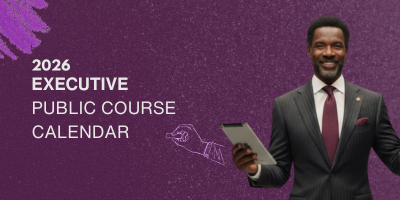How to Link Training, Promotions & Budgets in Public Institutions
October 2, 2025 Government
The promise of digital government is that citizens can access critical services anytime, anywhere, without having to queue at physical offices or wade through excessive paperwork. From tax filings to healthcare, education to business registration, e-governance is meant to simplify life and increase productivity. But in Nigeria, this promise often runs into a fundamental barrier: unreliable connectivity and inconsistent power supply.
Across the country, ministries, departments, and agencies (MDAs) are digitizing services and adopting cloud platforms. Civil servants are increasingly expected to collaborate virtually, while citizens are encouraged to engage online. Yet without reliable broadband and stable electricity, even the most sophisticated systems cannot deliver on their potential. This challenge is not unique to Nigeria. Globally, as public agencies migrate to the cloud and embrace hybrid work, uninterrupted connectivity has become mission-critical for productivity, service continuity, and inclusion.
The Local Reality
Nigeria’s broadband penetration has improved over the past decade, yet significant disparities remain. Urban centers like Lagos and Abuja are relatively well connected, while rural communities often rely on weak mobile signals or costly satellite options. Even where broadband exists, last-mile delivery is inconsistent, with frequent downtime. Electricity supply compounds the problem. Agencies in many parts of the country contend with daily power cuts, forcing them to rely on generators that increase operational costs and carbon emissions.
For citizens, this means online portals that fail mid-transaction, mobile apps that time out, and government services that remain out of reach. For public servants, unreliable internet disrupts hybrid work, slows project delivery, and limits access to cloud-based collaboration platforms. In short, the nation’s digital divide is reinforced by a power divide.
Global Parallels and Lessons
Countries facing similar infrastructure challenges have adopted creative approaches. In India, community Wi-Fi hubs combined with digital kiosks extend access to government services in semi-urban and rural areas. In Latin America, cloud-first government architectures are being paired with offline-tolerant mobile applications, ensuring that services can continue even when connectivity drops. In parts of Africa, solar-powered community centers have emerged as multipurpose hubs providing connectivity, power, and government services under one roof.
The lesson is clear: governments must design for resilience, not perfection. In contexts where brownouts and bandwidth bottlenecks are common, digital government must work both online and offline.
Possible Solutions for Nigeria
To bridge the gap, Nigeria should pursue a three-pronged approach:
- Targeted Last-Mile Broadband
Investments in broadband expansion must prioritize underserved areas. Partnerships between government, telecom operators, and development finance institutions can accelerate rollout, particularly if bundled with public service kiosks. These hubs could double as connectivity centers where citizens access healthcare enrollment, tax services, and agricultural subsidies.
- Offline-First Digital Services
Public sector IT teams must embrace “offline-first” design principles. This means mobile applications and portals should allow users to start, save, and complete transactions even when internet access is intermittent. Data can synchronize once connectivity is restored. Edge caching and lightweight mobile interfaces optimized for low bandwidth can make services accessible to more citizens.
- Hybrid Work Infrastructure
For government workers, secure collaboration stacks such as Microsoft Teams for Government or Zoom for Government can be paired with dial-in numbers, SMS verification flows, and asynchronous workflows. These tools ensure that even when internet bandwidth is limited, critical meetings and decisions can continue without disruption.
Advantages of This Approach
If Nigeria can make progress in connectivity and power reliability, the benefits will be far-reaching:
- Resilience and Continuity – Government services remain functional even during shocks such as natural disasters, pandemics, or security incidents.
- Inclusion – Citizens in rural and underserved areas gain access to the same quality of services as those in cities.
- Talent Retention – Hybrid work options attract and retain skilled workers who value flexibility.
- Cost Efficiency – Cloud-first architectures reduce the need for heavy on-premises investments, while community hubs spread costs across multiple agencies and partners.
Risks and Constraints
However, there are challenges to navigate. Scaling cloud adoption introduces recurring operating costs (OPEX) and financial management complexities, especially as usage grows unpredictably. Without offline alternatives, digital exclusion could worsen for those without access to smartphones or reliable mobile data. Finally, electricity reliability remains the foundation. Without sustainable power solutions, connectivity projects may fail to reach their potential.
Nigeria’s Path Forward
The pathway to resilient digital government lies in acknowledging reality: brownouts and connectivity gaps will not vanish overnight. Instead, Nigeria must adopt design strategies that assume disruption and build resilience into every service. Offline-first applications, hybrid work tools, and community-based access hubs are not just stopgaps, they are strategic enablers of inclusive digital governance.
Furthermore, investments in solar-powered microgrids, localized energy solutions, and regional broadband backbones will create the long-term infrastructure needed to sustain progress. Development finance institutions and donor agencies can play a catalytic role by funding pilots, subsidizing rural connectivity, and supporting public-private partnerships.
Conclusion
The digital transformation of government cannot wait until every village has fiber-optic broadband and 24/7 power. By designing for brownouts, Nigeria can ensure that its citizens experience the benefits of digital government today while laying the foundation for tomorrow’s fully connected state. In this way, digital governance becomes not just a vision for the future, but a practical reality that works under Nigeria’s current conditions.



